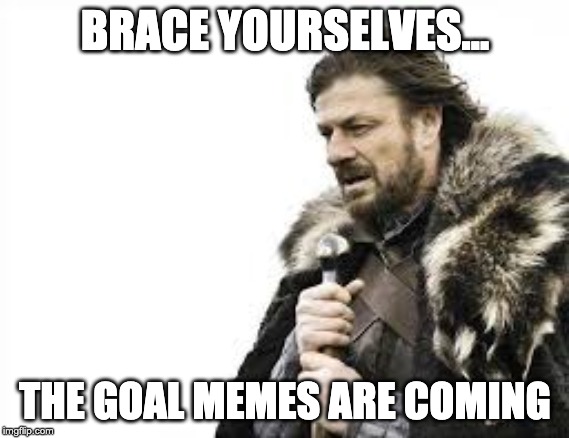Looking at your notifications, I’m betting you’re seeing the same two messages that I am right now:
- Wow, 2020 sucked a lot, and
- Here’s some advice about habits in 2021
Usually, when everyone else is doing something, I turn around and do the opposite. But in this case, I think both of those messages are spot on.
I do notice, though, that a lot of productivity advice comes with massively unhelpful baggage.
(This is me being polite about most self-appointed productivity gurus being clueless and/or just wrong.)
So here’s a make-2021-better post for the rest of us.
#1: Give yourself an onramp
If you have a new habit you want to get rolling — say, you want to write every day — keep in mind that habits are more about practice than willpower.
It would be swell if we could just make a decision and then consistently do things. But that isn’t how your brain works. (You’ve probably demonstrated that to yourself many times.)
So as you ramp up to a new habit, give yourself permission to mess up for at least a few days.
Designate the first week or two as “developing consistency” time, rather than expecting yourself to be immediately perfect.
And go for a really tiny version first. Stephen Guise says that if you aren’t a little embarrassed by how small your “mini habit” is, you’ve made it too big. I think that’s smart.
#2: Get clarity on the thing before the thing
A really common reason we don’t do big things is a lack of clarity on “the thing before the thing.”
That’s the preparation you need to do before you can do this new activity you’re trying to get rolling.
It might be an outline you need to write, research to be done, equipment to be ordered, or an interview to set up.
Consider developing ultra solid habits for the preparation for what you want to do. A classic example is setting a mini goal to put on your running shoes every day. Then experiment with letting the momentum of that propel you into your larger goal.
Inside Creative Fierce, we get together every Monday and quickly set specific days and times for “the thing before the thing,” as well as for our primary tasks. It takes less than 10 minutes, but it makes a massive difference in what ends up happening by Friday.
#3: Make sure your goals are actually your goals
I love this phrase from business coach LaTondra Murray:
Curated wants
These are the things you tell yourself you want because it feels like you’re supposed to.
- “To work toward world peace”
- “To serve my audience without selling anything”
- “To make sure my family never encounters any hardship, ever”
- “To look exactly the way my partner wants me to look”
- “To get along with all the difficult people in my life.”
Nice people often have a hard time admitting goals like,
- To make a lot of money
- To buy something nice
- To rest and enjoy myself
- To set boundaries with toxic people
- To make myself happy before worrying about everyone else
Settling for “curated wants” instead of your honest goals is a shortcut to burnout and resentment.
And you’ll nearly always give up on what you don’t actually want. Changing habits is just too hard.
Wanting to serve others and have an impact is a great goal, and it’s one that a lot of people share. But make sure you include self-oriented goals in your planning, too, even if they feel “frivolous” to you. Martyrdom is seriously overrated.
#4: Quit beating yourself up (science agrees)
This time of year, there’s a lot of conversation around “accountability” and “being tough with yourself.”
Real accountability is about harnessing the power of your social environment to give you energy to power through difficult tasks.
It’s not paying a “coach” to berate you into doing the thing because you feel guilty.
It’s also not about punching yourself in the face until you feel like working. (Or exercising, or being nicer to your partner, or whatever your goals might be.)
The research is abundantly clear:
Self-compassion works a kazillion [real science word] times better than guilt or shame.
Find some nice humans who want the same things you do. Show up with them. Do work together.
Give yourself some love and compassion when you don’t do what you intended to do. And make a plan for how you’ll do better the next time that obstacle comes up.
If you’re looking for some nice humans to help with that, you won’t find a nicer one than our community over at Creative Fierce.
#5: Manage your cheese intake (a little is ok)
You’ll probably notice that a lot of productivity advice is … well, a little cheesy.
That’s partly because what works today might have worked really well for your grandparents, too, so it feels old-fashioned.
(Pro tip: “old-fashioned” is a terrible reason not to do something that works.)
Where the cheese can give you indigestion is when it bubbles over into toxic positivity — the idea that a sunny attitude and plenty of elbow grease can give you anything in the world you want.
Problems are part of the real world. Some problems are not solvable by a single person. (Hello, institutional racism and other forms of systemic injustice.)
When I’m looking for the difference between a little useful cheese and something that’s just dopey, I see what the research says.
Writing about your values can feel a little cheesy, but there’s tons of research that shows how useful it is.
Self-help affirmations (“I’m good enough, I’m smart enough, and gosh darn it, people like me”) don’t have the same effective track record, and can even demotivate some people.
You’re the best judge of the amount (and type) of motivational cheese that’s right for you. You may be the kind of person who resists anything that looks “woo woo.” Or you might be the kind of person who can accept advice that’s a bit hokey if you find it useful. Which leads to my bonus tip for the day:
Bonus: Do one thing differently
Do One Thing Different is the title of a book written by a friend of mine. It’s also a great bit of meta-advice.
If you try to change everything at once, you’ll get frustrated and exhausted. And you’ll probably give up before you see anything good happen.
But if you make a commitment to one new habit, and start very small, my 2021 prediction is that you’ll make amazing things happen.
Got goals?
Working on any new goals or habits for the coming year? Let us know in the comments!
Image from Imgflip Meme Generator


Goals: write 30 minutes/day, work out (high intensity) 20 minutes/day 4 days/week. (Please no helpful advice about the type of workout. I think people’s bodies are pretty different, and I recently did an unintentional 2 month experiment with a particular workout and found that it works for me. If I actually do it. Which is the goal.)
Those sound good to me. Do you want to write for 30 minutes 7 days a week, or Monday through Friday?
My goal this year is to just focus more. My brain has this thing it does – running into new ideas and abandoning the ones in progress. So I made the decision to follow through one idea this year. To become a better content marketer and write every day at least 600 words. While cheese was not a big issue, I am actually checking my intake. Nice insights Sonia.
Nice, Ian! You’ll have to let us know how it’s going. 🙂